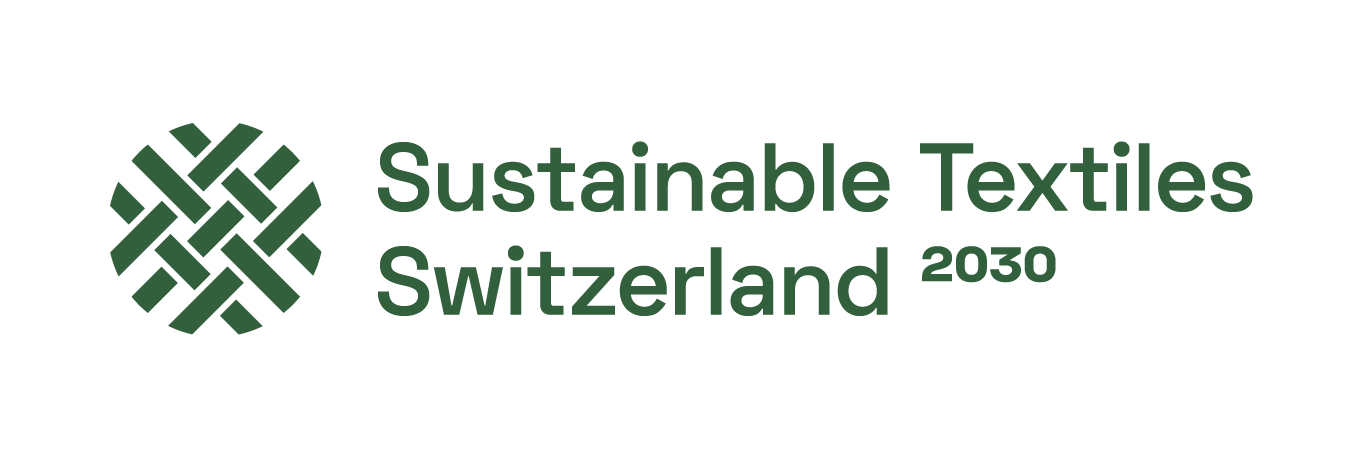FAQ
The Sustainable Textiles Switzerland 2030 program supports actors in the Swiss textile and apparel sector to act in a socially and environmentally responsible manner along their entire value chain and to integrate transparent sustainability criteria into their organization. The goal is a more sustainable Swiss textile and apparel sector by 2030.
We answer the most important questions about the program here. For further questions, feel free to write to us at .
General questions about the STS 2030 program
Who can make a commitment?
- Companies in the Swiss textile and apparel sector
- International companies selling in Switzerland
- Company with Swiss location
- Procurement bodies for textiles and clothing
- Private procurement agencies
- Public procurement offices of the municipalities, cities, cantons and the federal government
What does the commitment include?
By making a commitment, stakeholders confirm that they will take action to ensure the following goals are achieved:
- Reduction of greenhouse gas emissions.
- Promoting fair wages and decent work for all.
- Promotion of innovative business models toward a circular economy.
- Transparency to ensure that sustainable purchasing decisions can be made.
The detailed goals and milestones that must be met can be seen on the webpage Tragets.
What are the advantages of a commitment?
- Synergies through uniform objectives for all market players
- Support in the implementation of measures to achieve the objectives
- Support in the implementation of measures to achieve the objectives
- Demand promotion for sustainable textiles (B2B/B2C)
- Measurability of goals for own communication activities
- Taking a pioneering role and assuming personal responsibility
- Taking a pioneering role and assuming personal responsibility
What costs does a commitment include?
- Members of the associations pay a fee of 450 CHF excl. VAT per year.
- Non-members of the associations pay a turnover-based amount (approx. 1`500 – 10`000 CHF excl. VAT per year).
- Les services d’achat public paient un montant forfaitaire de 450 CHF, hors TVA. VAT per year.
Possible other costs:
- Internal costs e.g. for further training of employees for successful implementation and interaction with the program
- Support the “reflect your style” 2022+ demand-driven initiative in the form of a contribution or in-kind donation.
- Contributions to international partner initiatives or standards, if chosen for implementation
- Measurement of baseline & goal achievement using third-party tools or consulting services.
What happens when goals cannot be met?
As a first step, the obligated actors are requested to submit an improvement plan or to take immediate measures to achieve the objectives. If no such measures are submitted by the actors within 3 months, they are excluded from the programme.
Fragen zur Umsetzung des Programms STS 2030
Do I have to commit to all four goals at once or can I choose individual ones?
Committed actors must commit to all four goals of STS 2030. It is not possible to commit only to individual goals and thus become part of STS 2030.
I am a trade/retail company with a private label brand. Do I have to meet the targets for the purchased brands as well?
Retail companies with a private label have the option of committing only to their own brand. When communicating the commitment, however, this must be clearly visible to consumers at all times. In the longer term, however, strategic sustainability priorities must also be targeted for the purchased brands and these must be communicated in the sustainability strategy.
I am a public procurer and cannot establish long-term suppliers due to project tenders. Can I still commit to the goals? If yes, how?
Yes. If a public procurement organisation can prove that long-term partnerships are not possible, the target can be adjusted.
There are no standards that go beyond "tier 1". How can I control the entire supply chain?
Controlling the entire supply chain is a development process that will be supported over the next few years by the current developments in digital tools and data record standards. Initially, it may be sufficient to work with standards for ‘tier 1’ and then work from ‘tier 1’ further into the supply chain on a risk-based basis.
Critical issues around the STS 2030 program
For a socially and environmentally sustainable textile industry, binding, legal rules and targets for all actors are needed. However, the STS 2030 program is based on a voluntary commitment. Is that enough?
STS 2030 has compiled clear goals and measures in the roadmap and thus seeks to drive change. We are convinced that this can also come from the industry and not just from politics.
How does the program prevent greenwashing?
Committed actors are committed to achieving the STS 2030 goals and measures and are working to implement them. The timeframes for achieving the measures are listed transparently in the roadmap. If no or insufficient measures are taken, the obligated actors are excluded from the program.
For external communication, we issue guidelines to the committed actors and monitor their implementation. For example, the STS 2030 logo may never be used on products of the committed actors.
